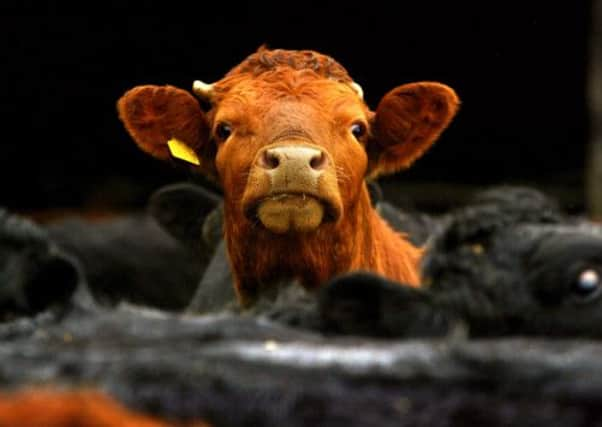Transparency on TB to cut spread


The Government has pledged to work with the agriculture industry to help farmers make full use of the information in response to recommendations made by the industry-led Risk-Based Trading Group (RBTG).
The move has been welcomed by the National Farmers’ Union (NFU) which believes it will help towards managing the spread of the infectious disease.
Advertisement
Hide AdAdvertisement
Hide AdProfessor Bill Reilly, chairman of the TB Risk-Based Trading Group, said: “We believe that the recommendations contained in our report are practical solutions that will be of real value to help reduce the spread of this terrible disease. We encourage industry and government to work together to implement our recommendations.” The RBTG also recommends the development of a new national database for farmers, vets and auctioneers that will use more detailed TB risk information to help farmers assess the TB risk of cattle they are looking to buy.
The group believes that historical testing information will help farmers in high risk areas with herds that have been free of TB for many years to achieve a fairer price for their animals at market.
Bovine TB is recognised as one of the biggest challenges that the cattle farming industry faces, particularly in the west and south west of England.
The government has been supporting the farming industry to take steps to eradicate the disease which, according to the latest data, saw 492 new herd incidents in January, compared to 483 for the same month the year before. The number of cattle compulsorily slaughtered in January was 3,202, up from 2,580 during January 2012.
Advertisement
Hide AdAdvertisement
Hide AdFarming Minister David Heath welcomed the RBTG’s recommendations this week.
Mr Heath said: “Bovine TB is a terrible disease which we have to get to grips with and I am determined that we do everything we possibly can to prevent its spread.
“Risk-based trading based on an animals’ TB risk will be a great step forward in empowering farmers to reduce the spread of this disease.”
The Government is considering more testing on the edge of high risk areas where an increase in the prevalence of the disease is occurring and is reviewing its diagnostic testing.
Advertisement
Hide AdAdvertisement
Hide AdThe NFU’s vice president Adam Quinney said there was wide agreement that there had to be a multi-faceted approach to tackling TB, and the development of a comprehensive database which links both animal health and cattle movement data could prove priceless.
“Other countries have shown how truly effective industry databases can help the farming industry control and eradicate disease,” he said.
“I know a number of these recommendations will be a challenge for some farmers and we will need to consider these recommendations and how they can be brought about practically in some detail. However, the wider benefits of being able to buy and sell stock, knowing the risks, should allow farmers to purchase livestock with more confidence.”
In the short term, the RBTG recommends that animals are presented at the point of sale with the animals’ TB test date, the date of the last herd test, the date of the last routine herd test, and the length of time the herd has been officially TB free.